Last month brought the news that Japan is officially seeking membership in the Trans-Pacific Partnership (TPP) regional free trade negotiations.
While many people at the national level immediately began pondering what this means for the TPP, your friendly bloggers here at the State of Trade are interested in a much more important question: what this could mean for Washington state (cheaper sushi?!).
Japan would be a Mt. Rainier Fuji-sized addition to the TPP, considerably expanding the regional trade agreement’s scope and potential impact; Japan boasts the world’s third largest economy, and its GDP exceeds the other ten nations in the TPP negotiations combined. In other words, a TPP with Japan would be a much more robust trade agreement that could dramatically increase economic integration in the region, opening up new opportunities for all countries involved.
Specifically, if Japan were to open up its economy and join a high-standard, comprehensive TPP that eliminates or significantly reduces tariff and non-tariff barriers, the TPP could be much more valuable to Washington state. Japan is a hot market for Washington-made products these days: in 2012, Washington exported $9 billion worth of goods to Japan, which is a 39 percent increase over the year before. In fact, Japan shot up to our state’s second largest goods export market in 2012, exceeding Canada as a destination for Washington goods. Considering Japan’s high tariffs on many Washington products (wheat is 252 percent!), this is pretty remarkable. Imagine how many more economic opportunities could unfold for Washington companies if Japan opened more access to its market!
According to a coalition of 75 agricultural associations, “the addition of Japan to the negotiations will exponentially increase the importance of the TPP to U.S. farmers and ranchers, processors and exporters as well as other sectors of the U.S. economy…furthermore, it will spur interest in the TPP among other countries in Asia and Latin America.”
The challenges to successful integration of Japan into TPP, however, are some serious trade barriers that they have erected to protect some of their industries – such as agriculture and the automobile industry – and it will need to lay these on the table if it is serious about entering the TPP negotiations. While Japanese Prime Minister Shinzo Abe is eager to join the trade partnership, stating “if Japan alone stays inward oriented, there is no chance that Japan can achieve growth,” he has also indicated that he will protect sensitive industries.
While many American business associations, like the agricultural coalition, support Japan joining the TPP, U.S. automakers are hesitant. Japan would certainly have to dismantle its high tariffs on autos and auto parts if the TPP were to create a level playing field for U.S. automakers. This is one of the first topics that USTR has raised in their bilateral consultations with Japan. The outcome of these consultations will determine if and when the U.S. supports Japan’s entry into the TPP negotiations.
It is looking more and more likely that Japan will make the move to open its market so it can join the TPP; the majority of Japanese citizens support it, and economic struggles have made Japanese companies (excluding the agriculture industry) fearful of falling behind global competition. We could know if Japan is joining as soon as the April 20 – 21 APEC meeting, which would mean Japan could join the July TPP talks.
In the meantime, I’ll continue to pay $12 for a rainbow roll. And you should continue to check the State of Trade blog for all of the most recent TPP developments!

